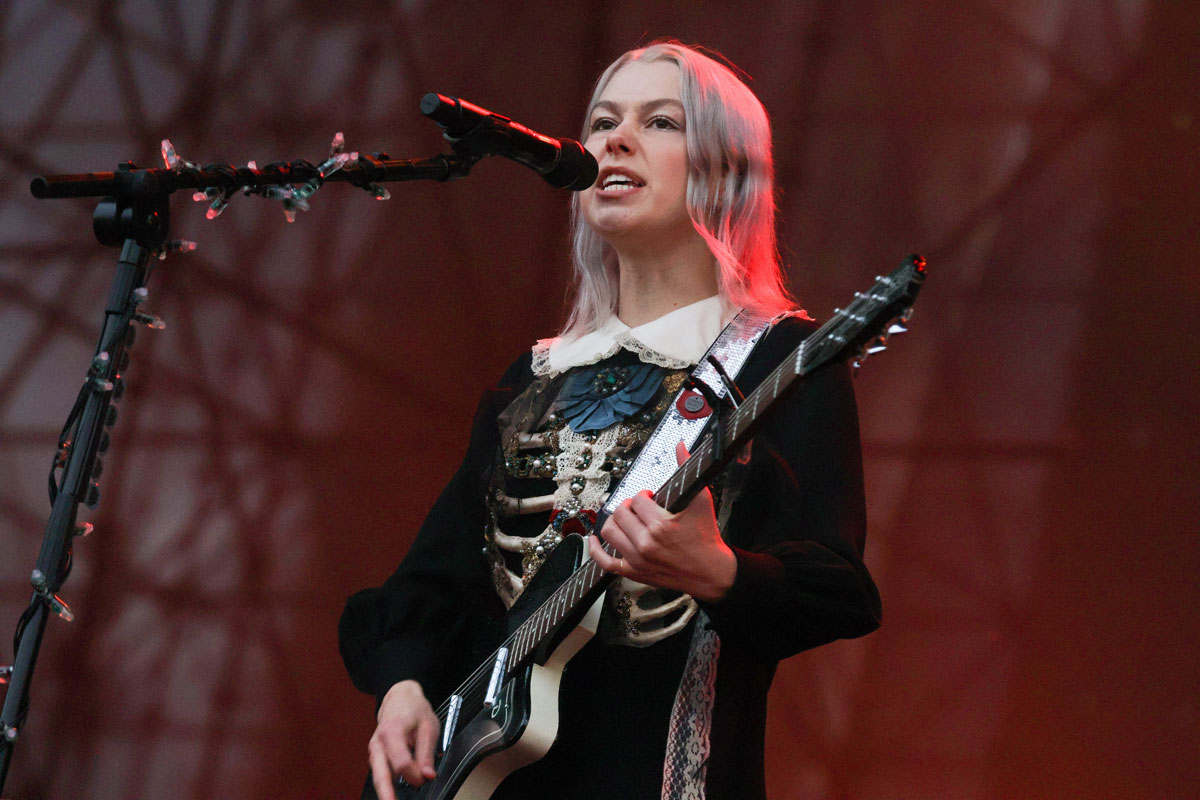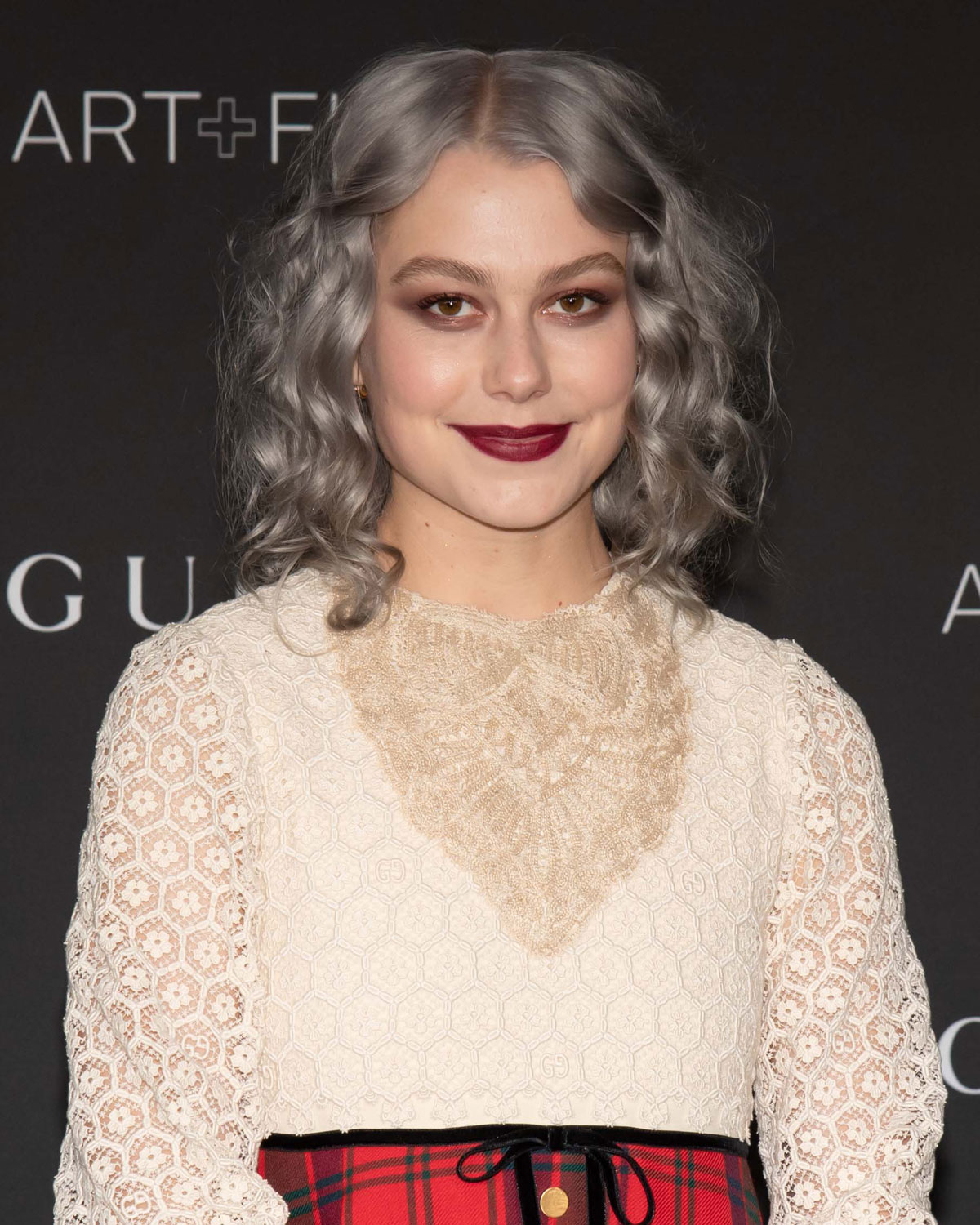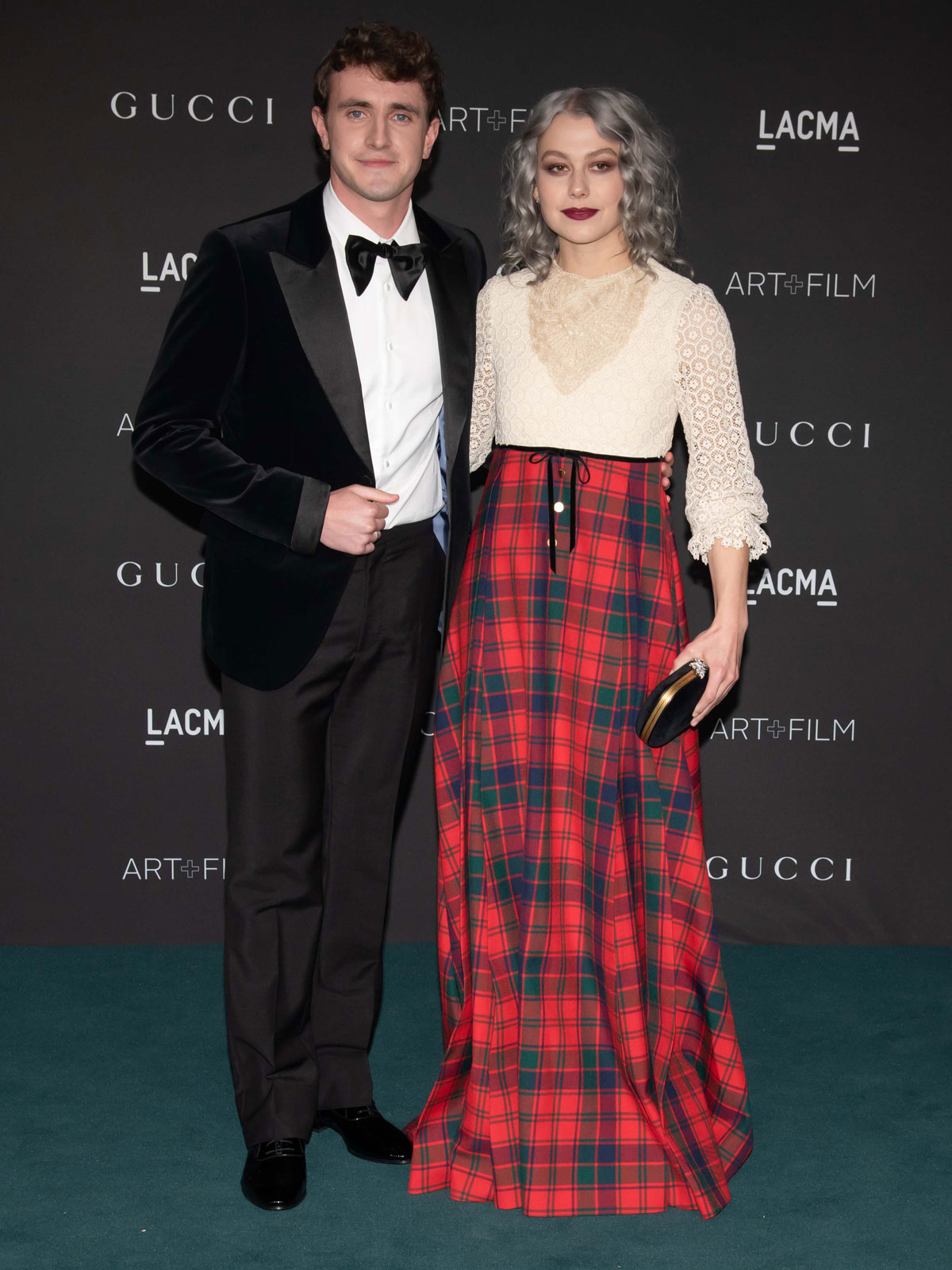
In the weeks leading up to SCOTUS overturning Roe v. Wade, Phoebe Bridgers shared that she’d gotten an abortion in fall 2021 while she was on tour. She went to Planned Parenthood and got the medication. She said, “It was easy. Everyone deserves that kind of access.” Of course she’s right. The many people who have shared their stories are essential to mobilizing and activating others in the fight for abortion rights and access. And Phoebe continues to advocate for the same, recently using her Teen Vogue cover interview to reach young readers on the topic.
Phoebe Bridgers is using her platform to advocate for abortion rights and access.
In her October cover story for Teen Vogue, the “Kyoto” singer, 28, reflected on her own abortion last year and why the Supreme Court’s decision to overturn Roe v. Wade and the right to abortion has inspired her to speak up on injustices.
“F— that s—, f— America,” she said of the reversal. “Like all these irrelevant motherf—ers trying to tell us what to do with our f—ing bodies.”
Bridgers explained that she doesn’t want the Supreme Court decision to intimidate women out of doing what’s best for themselves and their bodies.
“Don’t let anybody freak you out about an abortion,” the musician told the outlet. “Because unless you’re doing it in an unsafe way, there are resources for you if you’re trying to get one — and you should f—ing have one, for whatever reason.”
“It’s super safe,” she added while reflecting on her own experience. “Shout-out to Planned Parenthood. I was very held during it.”
Bridgers also recognized that it’s extremely difficult for many people to receive reproductive healthcare services because of the end of Roe, which is why she’s grateful for the many organizations that have stepped up to help provide easier access across the country.“I just think middle-class, upper-class white people are always gonna have access to health care and abortion, whether it’s through flying [to another state] or even access to f—ing organizations,” she told the outlet. “It’s just so much harder for the people that it was already hard for, so I like the organizations that are making life easier for those people.”
What Phoebe says here makes perfect sense. She’s talking about her own experience, emphasizing how safe and cared for she felt by the providers at Planned Parenthood. It seems like she’s trying to make that point for anyone who is scared or anxious about needing abortion care. And what she says about not “let[ting] anyone freak you out about an abortion” is particularly important, especially for young readers. Even people who have do or could have access and want to get an abortion may be intimidated by the SCOTUS decision, afraid of the misinformation, or pressured/guilted by partners or family or friends. I think it’s good that Phoebe is reminding people that it should be their choice alone and it can be done safely. I also appreciate that as a privileged white woman she’s talking about the disparity in access and resources and highlighting the good work of organizations that are trying to make that more equitable.
photos credit: Yuri Murakami/Fotoarena/Avalon, Media Punch/INSTARimages/Cover Images and via Instagram/Teen Vogue













No matter how rich (or white) you are, unless you have a private jet on standby, if you have a dangerous pregnancy for which you need an abortion *immediately*, if you can’t access it in your state, the pregnancy will kill you.
We need to talk about how dangerous pregnancy is a hell of a lot more. Pro-forced pregnancy proponents want us dead.
Holy shit, right??!! I’ve heard a bunch of hysterical right-wingers screaming that an abortion is not medical care — but pregnancy is a HUGE medical condition. No shit.
I had a super-easy pregnancy — felt great the entire time! — and still had no fewer than 4 risky situations that required high-level care. Maternal “geriatric” (I was 39). Baby had a double nuchal cord. Massive bleeding after; needed a manual placental extraction (AAAAAAGHHHH). Then severe postpartum pre-eclampsia. Like, verge of stroke.
I was so super lucky to have a great care team, great insurance, and people with me every step of the way. I WAS SO LUCKY.
Not everyone is this lucky, and how dare those snide motherfuckers think they have the authority to set mandates for every woman’s specific medical condition, situation, and access.
SquiddusMax- let me preface this by saying that I know that YOU did not come up with term, it was given to you, whether you liked it or not….. So I just want to say how INSANELY offensive it is to refer to a PREGNANCY as ‘geriatric’. If your body is still able to get pregnant, then you are, by definition, NOT geriatric. Geriatric means ‘having to do with the elderly’, and pregnancy is NOT a condition that affects the elderly. I cannot believe that in this day and age, Drs still use the term geriatric pregnancy.
The same hypocritical men who don’t believe abortions are health care, yet Viagra and secret abortions for their mistresses are.
It’s incredibly sad to see the US move backwards on basic rights and health care for half their population. The rest of the world is watching, cringing, and crying alongside you.
I get what she’s trying to do, and appreciate the intention, but she needs to stop telling young white middle class women that this won’t ever really matter for them and they’ll always be able to access an abortion they need. She needs to fucking stop that yesterday. Trust, when you’re bleeding out and need an abortion NOW, you won’t have time to get on any plane or do anything no matter your ethnic background.
Ummm…no. She is saying exactly what should she should be. Because she is absolutely right. Because considering the voting bloc of the majority of WW – they themselves seem to think it won’t ever matter to them.
If that were true, she should be telling them the truth: That it will matter to them. But it’s not true. A majority of young white women voters vote for Democrats, and it is not even close.
Either way, people need to tell the truth. There are middle class white girls — little girls — who are raped and can’t access abortion. People who keep claiming white women and girls are somehow safe from this are, plain and simply, wrong.
I think a lot of you are correct in making the point that her take comes from a position of her privilege as a young white woman. I’m not sure how many abortions are due to life-threatening situations, and regretfully I’m in my morning tamoxifen fog (and if I were to get pregnant, my cancer would come back, and *I’D* be in one of those life-threatening situations).
But I wanted to share an anecdote for context. Prior to Roe, my very Southern Baptist aunt in Alabama was flown twice to New York for a safe abortion. She came from means, and was able to bypass restrictive state laws because of her privilege. My mom used to tell me that story, and I think her intent was to convince me that abortion was scandalous (unfortunately for her, I came of age in Pensacola in the 90’s, and if you’re older like me, you know – if you don’t, Google Pensacola Abortion Murders). I took a different tact from her – abortion should be safe, legal, and accessible for everyone, not just children who are raped or women struggling with prenatal trauma or conditions.
I think you’re all right that this is bigger than a 20 year-old from Mobile, AL, having the financial freedom to make a choice – it’s an issue of public and personal health. But I do think she makes an important point that limited abortion access WILL disproportionately impact lower income women, and in many cases, women of color. That’s what I gleaned from her interview, at least.
Well, she’s absolutely right.